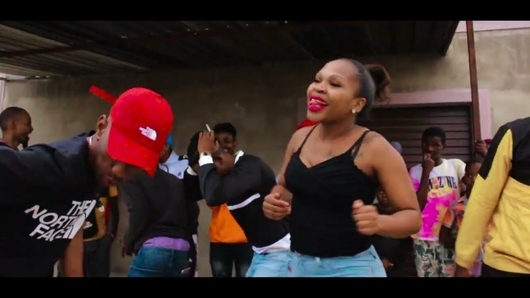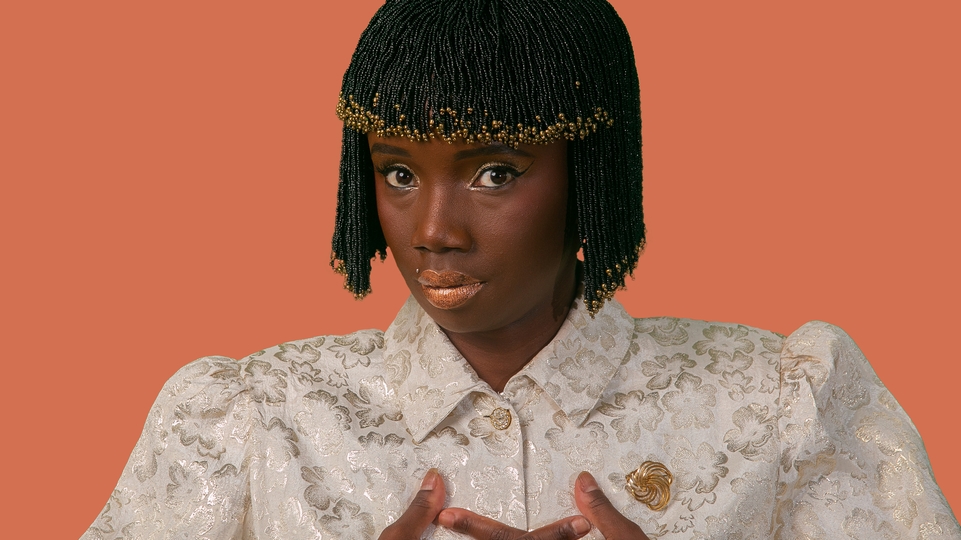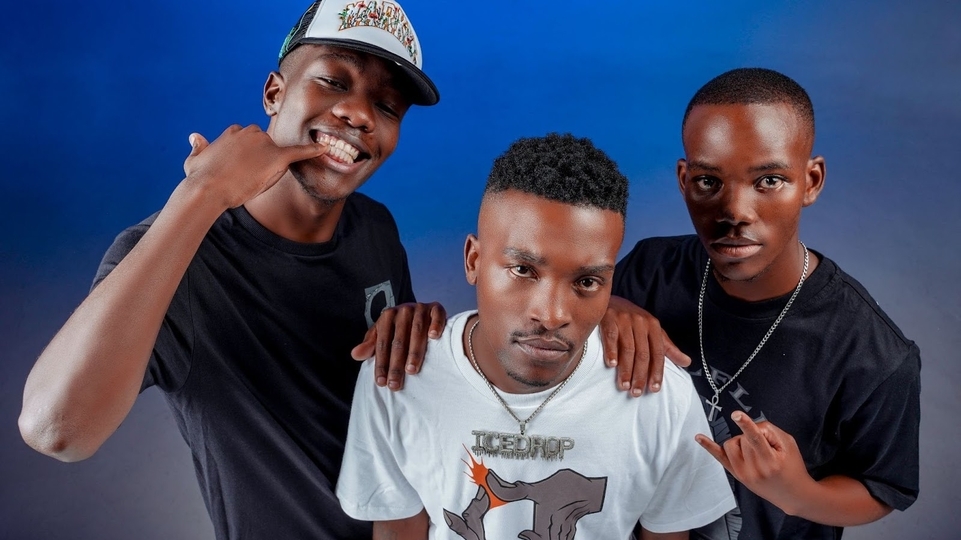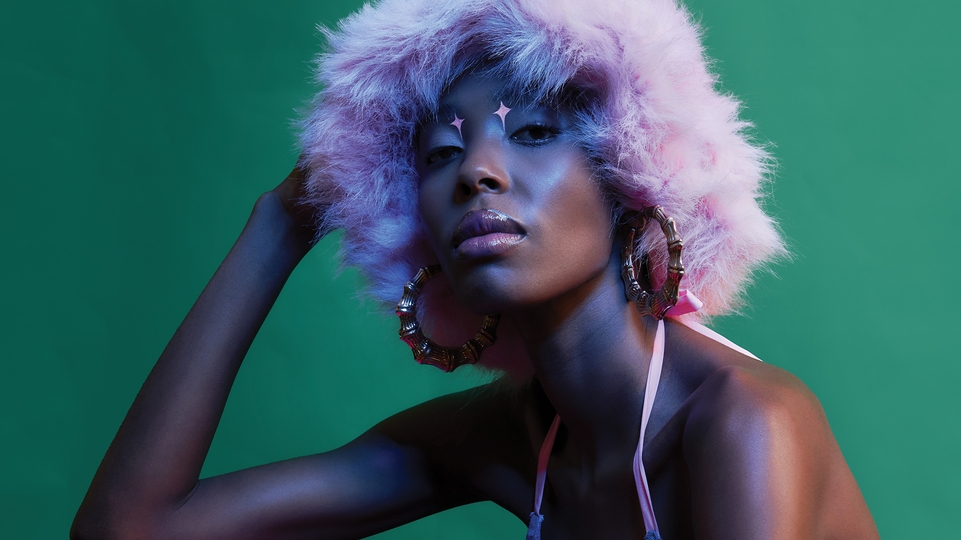
Phelimuncasi: 'When you listen to gqom, it is also speaking to you'
South African gqom trio Phelimuncasi have risen to fame with their politically charged vocals and innovative beats. Makua Adimora catches up with them to learn about their new album ‘Ama Gogela’, their creative process, and why their music is here to entertain and agitate in equal measure
“‘Phelimuncasi’ means ‘you drink whatever you drink with a straw and you finish it’,” Khera, one-third of the South African gqom trio, Phelimuncasi, tells DJ Mag one sunny afternoon in July. Joining from their hometown of Durban via a Zoom call, the group have been chatting about their unique style and the future of gqom in the South African dance scene. Vocalist — and Khera’s twin sister — Makan Nana is noticeably absent due to a non-negotiable work commitment.
“‘Muncasi’ is something that is small — that remains in the bottle,” third member Mathalon chimes in, further deconstructing their unique isuZulu-English moniker. “‘Pheli’ is something that is finished. So ‘phelimuncasi’ means you finish that little thing — water, cider, beer, whatever.”
For the trio, the name Phelimuncasi translates to something beyond pub etiquette; it is a metaphor for a deep-seated drive to amplify the beauty of gqom music beyond the borders of a dancefloor. The isuZulu-English moniker has actually become a motto for the trio, who continue to meld storytelling and sonics to elucidate their ethos of standing out from the crowd. “Here in South Africa, most people call themselves ‘Makumolo Boyz’ or ‘Umeke Boyz’,” Mathalon adds, referencing the common nomenclature among gqom artists. “When you call yourselves 'boys', it is similar to other people. We wanted to come with something different. We are different from the rest.”
In the world of gqom, Phelimuncasi’s music stands out. While rhythmically similar to their peers in the scene, the trio's distinctive vocals in a largely instrumental scene sets them apart. With their conversational lyrics, mantra chanting and theatrical storytelling style, the trio have become one of the loudest, unified voices clamouring for change, both within the South African artistic conclave and within the socio-political realities.
When twins Makan Nana and Khera started making music, they first experimented within Afro hip-hop. They would go on to hone their craft, experimenting with hip-hop, house and everything else they could connect with. Malathon, who is also a cousin to the duo, came into the picture in 2014, when they started playing at local shows. At the time, gqom was a major attraction, and they decided to throw their hands on the same deck and kick it as a trio.
“We did a collaboration in 2014 and people liked it. From there, we said, ‘Why don’t we be a group?’ And we have been moving forward ever since,” Khera says. Their growth as a collective has been surreal, for the most part. From political rallies in their hometown to large festivals, the trio have continued to shine, with almost a decade’s worth of live shows and music under their belt. A compilation of their work, 'Phelimuncasi: 2013 - 2019', was released via Uganda's Nyege Nyege Tapes in 2020.
“Growing up in Umlazi, it [life] is hectic; but not that much," Khera says, drawing a deep breath. "There, you learn different lifestyles. One part [of the city] is for gangsters, while the other parts are [more urban and calmer] suburbs.”
For Mathalon, this broad mix of realities is reflected in the heterogeneity of popular music in South Africa, at that time. “In our time, it was hip-hop that was popular. We started making hip-hop, but we felt later on that our generation was more familiar with gqom. So, we switched.”
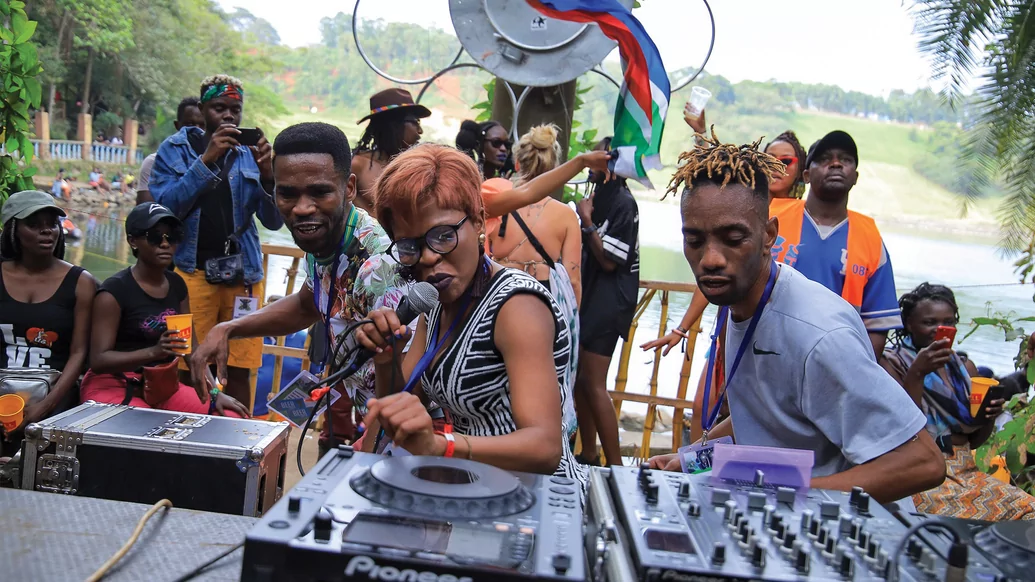
“We are here to irritate. We are here to bring gqom to the world... We are here to be recognised"
Gqom itself is a genre of rebellion, springing in the early 2010s from young Durban musicians who decided to experiment with irregular beat patterns in house music, creating crude melodies that complemented their socio-political struggles. The genre has witnessed a rush of rising acts exporting the sound, including previous DJ Mag cover star DJ Lag. Phelimuncasi are an act at the forefront of this musical movement today, being one of the earliest gqom acts to sang on their records. “When gqom was formed, it was formed with only instruments. Then, in 2011, people started including vocals, and we also decided to put vocals on gqom. That was when we just switched from hip-hop.”
As a new wave of gqom has swept across South Africa and into global climes, Phelimuncasi have retained the recipe that makes the genre what it truly is, a melody of revolution. “You see, when you’re listening to gqom, gqom is the instrument,” Khera explains. “When you listen to it, it is also speaking to you. When you say 'ktu ktu ktu', it is saying something, 'ktu ktu ktu ktu ktu ktu ktu ktu'. You must interpret it. We are the interpreters of gqom.
"When gqom was formed, it was formed on the road," he continues. "It was playing in taxis, in the clubs and we were there to do all those hooks, maybe two hooks, gimmicks or something like that. We started from there and then put our vocals on the instruments.”
With their recently-released album, ‘Ama Gogela’, the trio weave layers of positivity and unifying narratives through the rhythmic gyrations gqom. Like in their earlier records – ‘Ngavele Ngagaxela’, ‘Ngiphupha Izinto’, ‘Kolamusa Nkusa’, among others – this approach to musical storytelling remains a key ingredient for Phelimuncasi. “We are echoing the realities of the people. We are not attacking any political party,” Khera clarifies.
“Gqom is similar to political songs when you understand it," he says. "The political songs say 'hay hay hay ebe bana hay hay hay'; those chants are actually political. Gqom, on the other hand, is 'tzu tzu tzu tzu tzu tzu', which is similar but different. Sometimes, when we go to perform at political rallies, it is those kinds of noises you hear, stomping feet and everything. We do have some tracks that are political, but they are not political statements. We are not discriminating against them, neither are we siding with them. Whenever you are at a political event, you can stamp your feet to our songs. It is like you’re going to a rally. There is a [subtle] similarity between our music and political music.”
The trio's creative process is rapid, enabling them to get into the studio, listen to a litany of gqom beats from producers, and create “two albums in two weeks”. Still, when it comes to making records, the trio are dedicated to quality and innovation. ‘Ama Gogela’ features production from regular collaborators DJ MP3 and DJ Scoturn, local artists DJ Nhlekzin and DJ Ndakx, and SVBKVLT-affiliated South Korean producer NET GALA.
“Working with NET GALA was something amazing. To work with different producers outside South Africa, from other continents, from other sides of the world, it was great," they say now, "And it isn’t that we worked with NET GALA by him sending beats to us in South Africa. We were in the studio with NET GALA. We worked here in the studio and it was fun, nice and we studied new instruments. In South Africa, we know gqom, hip-hop, amapiano, and all the other genres, but to work with someone who is into other genres aside from gqom was exciting. We would tell him, 'No, can you do this or put it this way? Turn this instrumental to this?' It was fun, it was good and you can even see that the two songs that we made are making some noise. The radio stations are telling us that we are popping.”
Named after a local bee, ‘Ama Gogela’ features some of the grooviest music the trio have ever recorded, giving it a cross-continental, universal appeal. “The album was inspired by us being here as a stingray,” Khera explains. “We are here to irritate. We are here to bring gqom to the world... We are here to be recognised. Our music wants people to see us and say, 'Phelimuncasi is here' and it is also in Zulu. Ama gogela is the legendary bee of South Africa. We have different bees; some make honey and some sting, but this is the king of bees in South Africa, and that’s why we named our album that."
As the trio prepare for their European tour later this summer, their sentiments continue to shine with an unforgettable warmth. For the trio, making music is not about swinging the popular trend. Despite being versatile enough to “have hip-hop and amapiano songs”, their biggest goal remains to take their sound beyond the shores of expectation. And, wherever the sun shines, they just want you to move your feet and heart to their groove.

